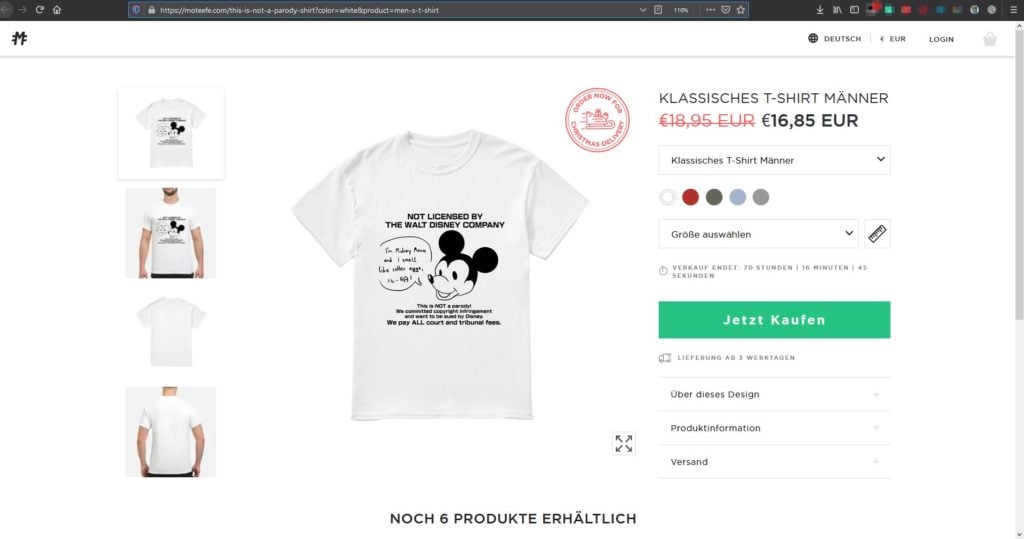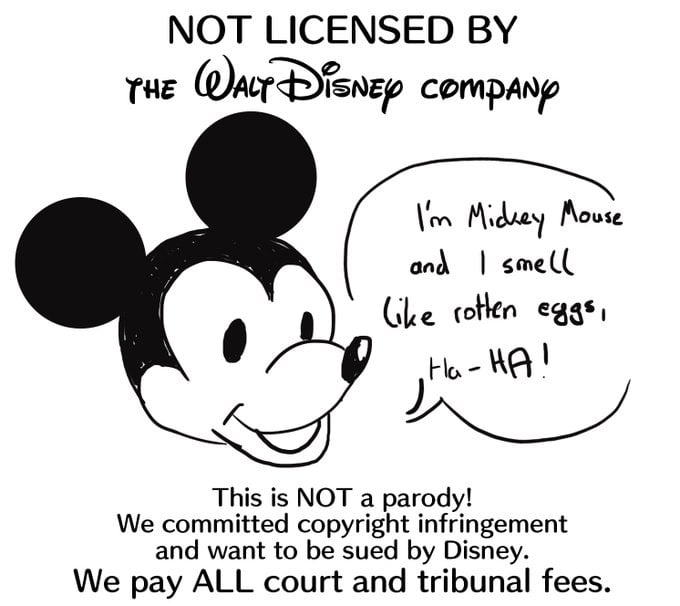You can set your watch by artists’ and designers’ legal complaints against corporations big and small that, they allege, have stolen their designs (to say nothing of creators accusing other artists of stealing their work, but that’s another story). Artists have typically sought damages; the cases generally settle out of court.
Now, two artists and their Twitter followers have come up with a more crafty way to strike back at companies that, they say, have used bots and algorithms to misappropriate images in artists’ viral tweets, turning them into clothing. The bots often watch out for messages like “I would love to see this on a T-shirt,” and then, according to some artists, turn them into T-shirts that are then sold by companies like TeeChipOfficial and Teeshirtpublic.
The battle began earlier this month, when Twitter user Hannah Douken posted an image that was meant to trick such companies into confessing their own sins, proclaiming, “This site sells STOLEN artwork, do NOT buy from them”:
When Hans-Jürgen Eisenbeis, an artist who lives in the Berlin area, saw her tweet, he had an idea for a devious scheme to bait companies into creating an even more damning product:
Knowing that Disney is highly protective of its properties, Eisenbeis drew Mickey Mouse copping to body odor; in a speech bubble, the beloved rodent says “We committed copyright infringement and want to be sued by Disney.” The choice of a Disney character was doubly apropos, given the entertainment giant’s repeated extensions of its copyright on the character’s image, which some lawyers argue goes against the spirit of copyright law.
Douken and Eisenbeis’s tweets caught on, with other users retweeting their tweets, saying they want to see their designs on a T-shirt. Sure enough, by December 4, Eisenbeis would post the rudimentary cartoon image on a T-shirt on offer from the company Moteefe, listed at just under €17.

Courtesy Hans-Jürgen Eisenbeis.
Douken, the originator, did not reply to a Twitter message seeking comment.
But Eisenbeis did. “To be quite honest, it first started for me as part of a game,” he said in an email to Artnet News. “People found out how those annoying theft bots react and act, and everyone created designs [to] expose all shirt shops profiting from art theft. But I kinda approached it from a different angle and wanted to see if their automatic system also detects easy shapes like Mickey Mouse. I was really not expecting bots to look right past the ‘copyright infringement’ and just steal my design without any filters.”
But while the subversive campaign was fun, he said, the issue is not funny.
“It’s a huge issue with independent artists, who want to gain a following and also sell their own merch. Art theft hinders them to grow and potentially also cuts their income. So I’m happy we can celebrate a tiny victory against one of the art theft mechanisms.”







